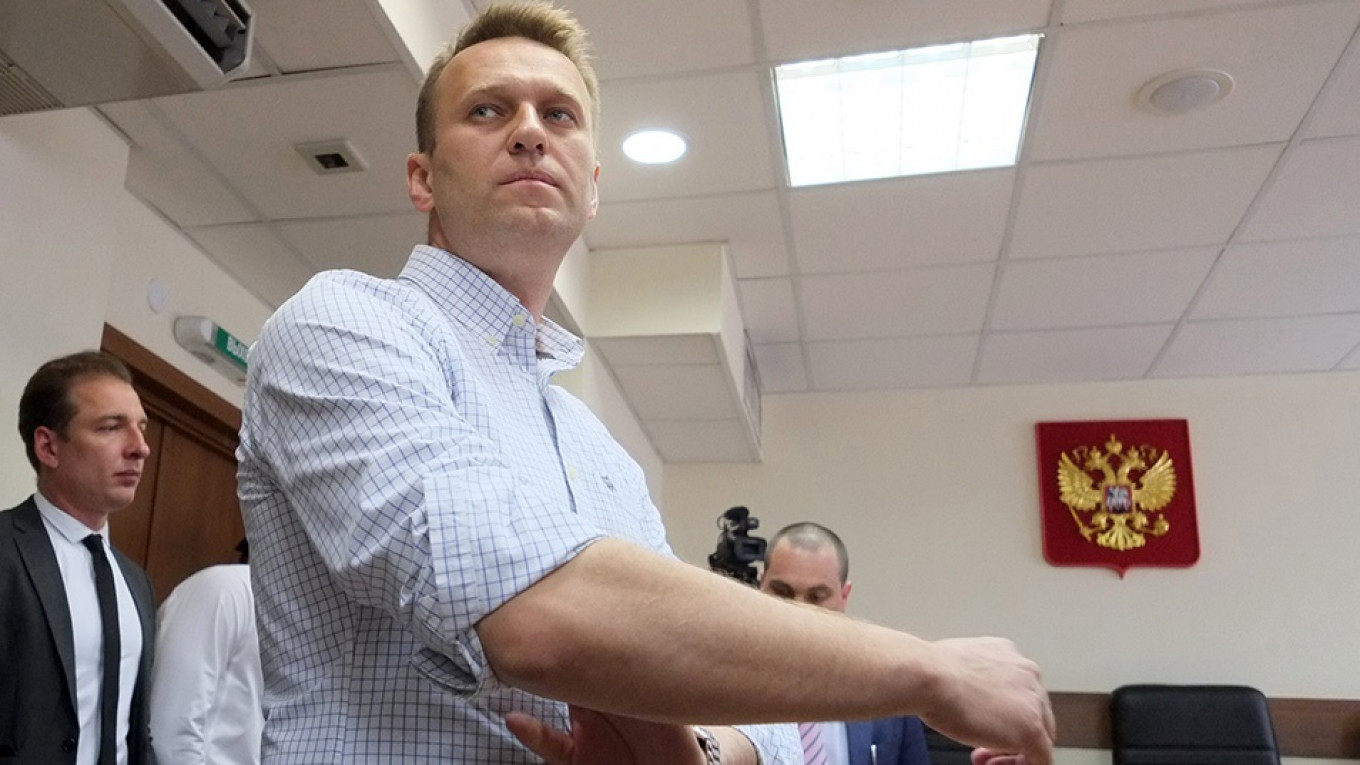
Leading Kremlin critic Alexei Navalny was poisoned with a new, deadlier variant of military-grade nerve agent Novichok, the German weekly Die Zeit reported Wednesday.
Hours after the Die Zeit report, The Insider news website reported, citing anonymous sources, that Navalny, 44, has almost completely recovered after falling violently ill on a flight in Siberia on Aug. 20 and remaining in a coma for more than two weeks. He was evacuated to a Berlin hospital after Siberian doctors ruled out poisoning as the cause of his illness.
“Navalny was poisoned with a novel development of the chemical weapon Novichok — a variant that the world had not known until this attack, but which is said to be more vicious and deadly than all known offshoots of the Novichok family,” Die Zeit reported.
Only the Russian intelligence services could have carried out “an operation with such a lethal and complex poison,” Die Zeit reported, citing German intelligence.
Germany said last week that “unequivocal evidence” pointed to Navalny, the de facto leader of Russia’s opposition, being poisoned by a nerve agent from the Novichok family. Chancellor Angela Merkel has said that “only Russia can and must answer” questions regarding Navalny’s poisoning.
“This new Novichok variant works slower than the previously known ones,” Die Zeit wrote.
German military scientists in Munich found residues of the new type of Novichok on Navalny’s hands and the neck of the water bottle he had been carrying when he fell ill, it added.
At least two scientists involved in Novichok’s development have hypothesized that Navalny may have been poisoned with a different type of Novichok than that used in 2018 on former spy Sergei Skripal in Britain.
Germany suspects that an FSB agent or another Russian intelligence officer “dripped the poison into the tea or applied it onto the cup’s surface,” according to Die Zeit.
The Insider, which reported on Navalny’s recovery with Germany’s Spiegel weekly and the investigative website Bellingcat, said Navalny is able to recall the events leading up to his poisoning and up to the time when he lost consciousness.
“His health condition is better than one would expect in such a situation,” The Insider wrote.
Navalny’s spokeswoman called the reports about his condition “highly exaggerated” and “factually inaccurate,” saying in a tweet that Navalny has been regaining consciousness and reacting to outside stimuli since Monday.
Russia’s Foreign Ministry summoned the German ambassador Wednesday to demand further information about Navalny’s treatment there.
The Siberian doctors who treated Navalny before he was flown to Berlin maintained that their test results showed no signs of poisoning in Navalny’s system.
